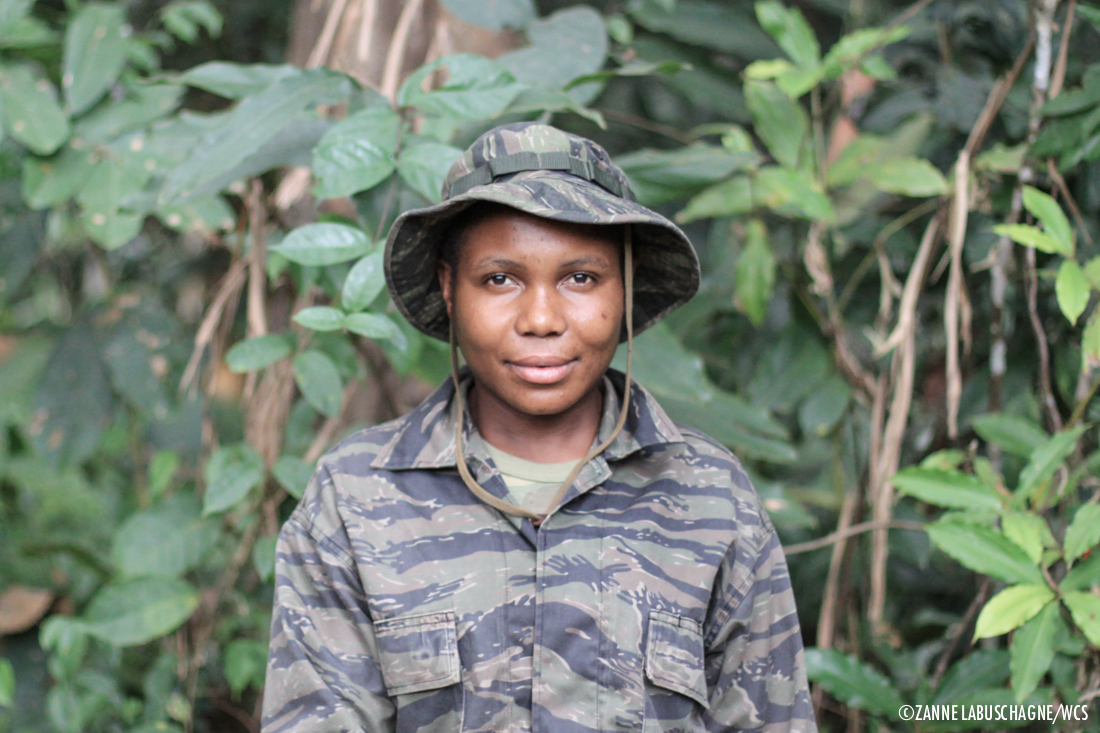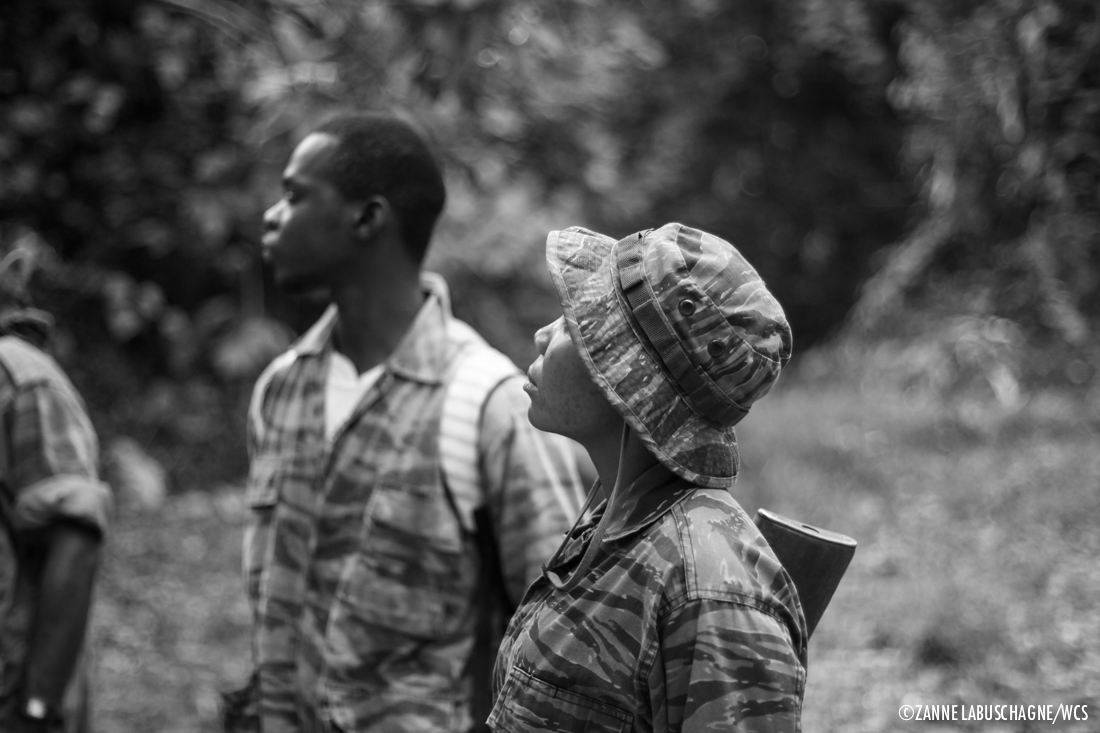
a fearless woman
Working as an eco-guard in the forests of central Africa is not a job for the faint hearted. The eco-guards working in Nouabale-Ndoki National Park spend 15 days out in the field at a time, covering many kilometers each day, often through thick forest undergrowth. Anyone who has walked in the forest can confirm it can be pretty unrelenting. They also have to constantly be on guard for both wildlife and poachers that put them in danger. Now factor in the that you are the only woman in your team and that you are of Bembajele descent , an often marginalized indigenous people… these are the odds that 24 year old Marguerite has bravely overcome and persevered in her pledge to be an eco-guard and do the ‘job of a man’. I spent some time with Marguerite on a recent visit to Bomassa and we caught up under the forest canopy alongside Wali bai where her and her team will be spending half a month securing the area and protecting the elephants that visit the bai each night.

ZL: How long have you been an eco-guard for and what were you doing before that?
MA: I have been an eco-guard for the past year and a half. Before that I was a cook at Bomassa base.
ZL: What made you decide to become an eco-guard?
MA: There was no particular reason. It was a voluntary choice. I decided I wanted to be out in the field being an eco-guard even though it is generally considered to be a man’s job. I wanted to see if I could do it.
ZL: What is the most difficult aspect of your job?
MA: Being an eco-guard involves a lot of walking, but you get used to it. At the beginning the long days of walking were a bit hard, but now it doesn’t bother me. Other than that I don’t find anything in particular difficult.
ZL: What advice would you give to other women who might be inspired by you, and other female eco-guards in Africa, to become an eco-guard?
MA: To do this job you have to be really motivated and really want to do it. They need to be ready to walk long distances and they have to respect the leader of their group. There is a lot of discipline involved in the job and they need to be ready to respect that. It is difficult at the beginning, but this should not discourage them, you soon get into the rhythm of it and it gets easier.
ZL: When you come across wildlife in the forest does this encourage you to keep on taking on the challenge of protecting Congo’s natural heritage?
MA: Yes, it gives me courage and motivation to carry on working to protect these animals. This is why we are here in the field, for their conservation.

